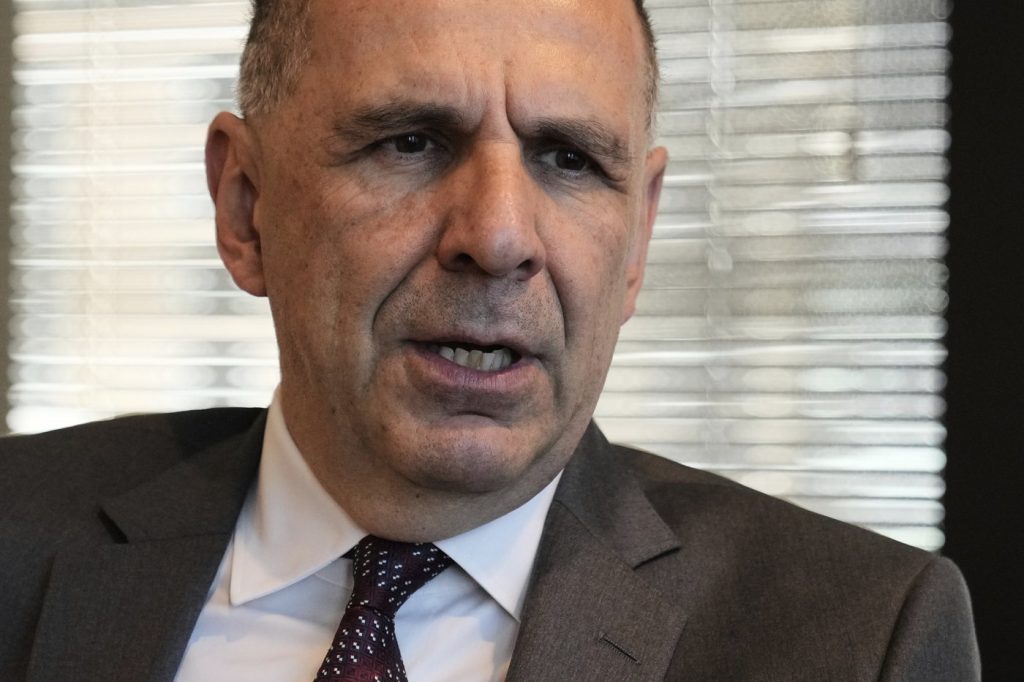The world is experiencing unprecedented turbulence since World War II, according to Greece's Foreign Minister Giorgos Gerapetritis. He highlights a significant crossroads in democracy and a "political identity crisis" in Europe. His remarks come during a comprehensive interview with The Associated Press.
Gerapetritis addresses the escalating violence in Gaza, which he describes as a "nightmare," and reaffirms Greece's solidarity with Ukraine. He also critiques U.S. President Donald Trump’s tariffs, labeling them as unfavorable.
In discussing the crisis in democracy, Gerapetritis emphasizes that escalating inequalities among nations and peoples are threatening the core principles of democracy and the rule of law. “We have turned into an era where populism and demagogues are essentially ruling the state,” he articulated, noting that global turmoil has been exacerbated by technological advancements and increased mobility, which magnify the impacts of challenges such as pandemics, climate change, and migration. He also pointed to a decline in trust in international organizations, which have struggled to effectively address global challenges.
Despite these challenges, he remains optimistic about democracy's ability to correct itself, highlighting the necessity for strong leadership in major nations and international organizations to restore faith in cooperation for peace and prosperity.
Regarding the current conflict in Ukraine, Gerapetritis observed that the European Union's requirement for unanimous decisions among its 27 member states has created substantial obstacles. He acknowledged that while the veto power reflects national interests, it has hindered progress in critical decisions. “Europe is in a political identity crisis,” he stated, stressing the need to recall the fundamental elements that united Europe and to rebuild resilience in the wake of the ongoing conflict.
In terms of Greece’s stance, Gerapetritis reaffirmed the country’s support for Ukraine, focusing on the principles of rule of law and territorial integrity. He commented on the EU and U.S. sanctions against Russia, expressing that their impact has been limited, as Moscow has found ways to circumvent many of the economic penalties imposed after its invasion of Ukraine in February 2022.
On the topic of the Israel-Palestine conflict, Gerapetritis articulated Greece’s support for a two-state solution, emphasizing Greece's role as an “honest broker” in discussions over Gaza’s reconstruction. He condemned the brutal actions of Hamas, which resulted in the loss of 1,200 Israeli lives and the taking of hostages during the attacks on October 7, 2023. He also expressed his deep concern over the humanitarian crisis in Gaza, where over 53,000 Palestinians, predominantly women and children, have been killed amidst ongoing conflict.
As Greece prepares to preside over a U.N. Security Council meeting focused on protecting civilians in conflict, Gerapetritis called for substantial humanitarian aid to Gaza and an urgent ceasefire. He noted that some aid trucks have recently begun to enter Gaza after months of blockade.
Furthermore, Gerapetritis spoke about the growing relationships between Greece and the U.S., citing investments from major companies like Amazon, Google, and Pfizer. Although the tariffs imposed during the Trump administration have had limited impact on Greece due to the nature of its trade, he advocates for free trade principles and a need for a "modus vivendi" to reach a compromise in matters related to trade.
In conclusion, Gerapetritis highlighted the complexities of international relations, economic policies, and humanitarian issues in which Greece is actively engaged, reflecting a commitment to diplomacy and dialogue in addressing global challenges.











